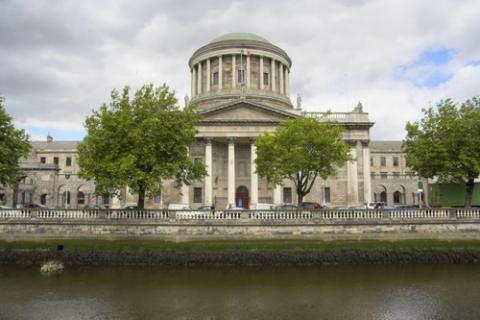Taxpayers to bail out the lenders

The Zoe case in the High and Supreme Courts over the last few weeks has given a disquieting insight into the disposition of the banks, which suggests that Nama may be an even greater disaster than many of us feel. It also raises questions about the conduct of accountants, who will be crucial agents in how Nama works out.
In his judgment in the Zoe case last Friday, the judge, Frank Clark, found that Zoe had failed to meet the statutory requirement for the appointment of an examiner: a reasonable prospect of survival. He came to this conclusion on the basis of a meticulous analysis of a new business plan presented on behalf of Zoe and prepared by the accountancy firm KPMG. He identified simple arithmetic mistakes in the plan (see paragraph 4.24 of the judgment), but more critically he found the key assumptions to the plan to be implausible.
These were that interest rates would remain at 1 per cent from now to the middle of 2011 (Jim Power, economist with Friends First had submitted an opinion to the court suggesting interest rates might well rise to 4.5 per cent by then) and that property values would recover significantly by the middle of 2011 (Morgan Kelly of UCD disagreed strongly with this view, predicting property values would not recover for a decade).
There are a number of significances to this, aside from the gloomy ones on our economic prospects. The first is how did a reputable accountancy firm, KPMG, base a business plan for the Zoe companies on such dubious assumptions?
They may be right that interest rates will not increase at all between now and 2011 and that the property market will recover, but to base a business plan on both of these assumptions strains credulity.
As Frank Clark pointed out, if property prices do recover, it will have been on the basis of a European-wide recovery, in which case interest rates would certainly have risen. Or if interest rates remain at 1 per cent, it will be because the euro economy has remained in recession, in which case property prices could not have recovered.
Aside from the surprise that KPMG could base a business plan on these assumptions, one wonders how it is that the banks, who are owed €1.2 billion by the Zoe companies (much more by all the companies in the group) are prepared to have the companies survive. Indeed two of the banks, AIB and Bank for Scotland, have given further millions to the Zoe companies to keep them alive and to enable them take court actions to prevent liquidation. AIB holds 43.7 per cent of the group’s debt (over half a billion), Bank of Scotland 22.2 per cent (over quarter of a billion), Bank of Ireland 9.3 per cent (around €110 million), Anglo Irish Bank 3.1 per cent (€37 million), KCB Bank Ireland 1.9 per cent , around €23 million) and ACCBank 10.7 per cent (€122 million).
All of these banks, aside from ACC – it wants the Zoe companies to be placed in liquidation – agreed to put a moratorium on the repayment of the group’s debts and to roll up interest. This is even though the prospects of survival of these companies are very poor.
What is going on here?
It seems these banks (aside from ACC) reckon that their chances of getting a load of money from Nama for these bad loans is much better than how they would do if the companies were liquidated. In other words, they are lining up to get money off the rest of us, via Nama, to rescue them from their own reckless lending.
And AIB and Bank of Scotland have spent yet further millions in giving more money to the companies, anticipating, probably correctly, that they will get that back from Nama as well. That is the money given to the companies to stay alive until Nama arrives and some millions to keep two High Court cases and two Supreme Court cases ticking over.
One of the banks engaged in this practice is a bank we own, Anglo Irish Bank. What is it doing agreeing to put a moratorium on debt repayments and rolling up interest on the €37 million of our money, waiting until our agency, Nama, can bail out the rest of the banks? With regard to the banks’ conduct, you would have to wonder what the esteemed directors of the banks were doing over all those years during which lending got out of hand.
Section 138 of the 1990 Companies Act says if, in the course of winding up a company, it appears that any person was, while an officer of the company, knowingly a party to the carrying on of any business of the company in a reckless manner, a court may declare that such person shall be personally responsible, without any limitation of liability, for all or any part of the debts or other liabilities of the company.
Or are bankers too important to be investigated for criminality?
